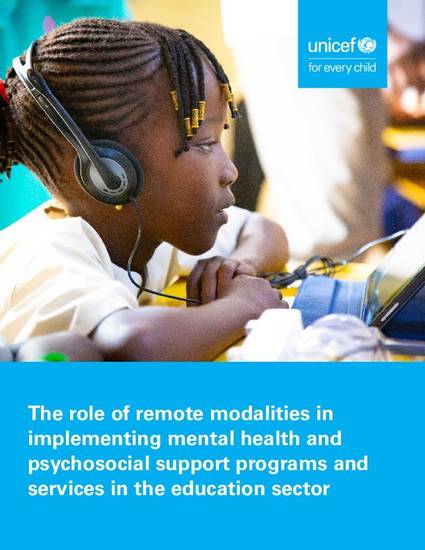
The purpose of this report is to inform policymakers and practitioners about current interventions that promote the mental health and psychosocial wellbeing of learners, delivered at a distance or through a blend of remote and face to face learning approaches, including support to educators and caregivers through schools and other learning environments. The findings and recommendations are based on a global rapid review of available evidence to identify promising mental health and psychosocial support (MHPSS) programs that have characteristics suitable for remote delivery in low, middle-income contexts and emergency contexts. The delivery modes focus on paper-based, radio, phone, TV and digital approaches, and consider the advantages, constraints and risks in using these remote modalities to support MHPSS needs in the education sector.
Copyright United Nations Children’s Fund (UNICEF) 2022
